FASAM has executed numerous gas treatment projects such as natural gas sweetening, dew point control, glycol dehydration, molecular sieve adsorption, and cold temperature separation. The company is a license holder of specific process engineering design software packages PROSIM, T-SWEET and HYSIM. In addition the company has developed its own proprietary software for design of natural gas treatment systems.
Natural Gas Treating
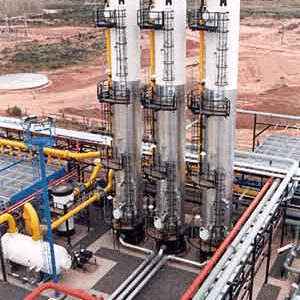
Acid Gas Removal
Amine sweetening is a reliable and proven technology for removing H2S and/or CO2 from sour gas and in situations in which low outlet concentrations are required. At FASAM, we offer units using MEA, DEA, MDEA, DGA, and as well as other proprietary amine solutions for this purpose. Units can be supplied as Modular or field-erected plants.
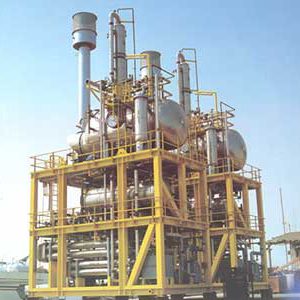
Gas Dehydration
The aim of gas dehydration process is to remove entrained and dissolved water from natural gas streams, to prevent formation of natural gas hydrates in gas pipelines and minimize their corrosion due to presence of water. We specialize in design of the following processes for gas dehydration packages: Glycol-based Dehydration and Molecular Sieve-based Dehydration.
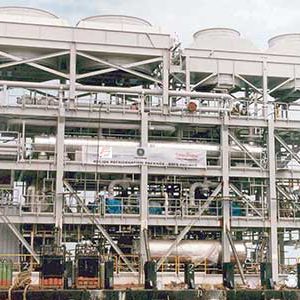
Gas Dew Point Control
Several technologies are available to control gas dew points. The water dew point is achieved by means of dehydration processes while the C6+ hydrocarbon dew point is achieved by means of gas cooling processes which are based both on gas expansion or on direct gas cooling to condensate the heavy hydrocarbons fraction. FASAM can also provide a Low-Temperature Separation or Silica Gel-based Dew Point Control package, or even a combination of the aforesaid technologies.
Gas Cooling Processes for Hydrocarbon Dew Point Control: gas cooling is achieved in different ways, by means of gas expansion in a Joule Thomson (JT) Valve or by use of the more efficient Turbo-Expander.
Silica Gel Adsorption for combined Water & Hydrocarbon Dew Point Control: Silica gel is porous solid in form of beads able to adsorb both water & heavy hydrocarbons (C6+) from natural gas. It is suitable for treating high pressure natural gas streams allowing the control of both water and hydrocarbon dew points in a single process unit and with minimum pressure drops.
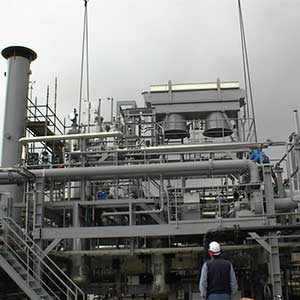
Glycol Regeneration & Reclaimation
FASAM custom designs glycol regeneration packages to recondition glycol used for processes such as hydrate inhibition and gas dehydration.
The formation of gas hydrates can lead to significant production and safety issues in drilling operations as the solid hydrate material can plug flow lines carrying natural gas and equipment. Therefore, to prevent the formation of hydrates glycol, typically monoethylene glycol (MEG), is injected into the well. The MEG that returns from the well is termed Rich MEG and contains significant quantities of water, dissolved salts and other contaminants. FASAM custom designs glycol regeneration systems to strip the absorbed water, salts, and contaminants from the Rich MEG to produce Lean MEG that can be recycled to storage tanks and production wells. These units can be supplied as Modular or field-erected plants.
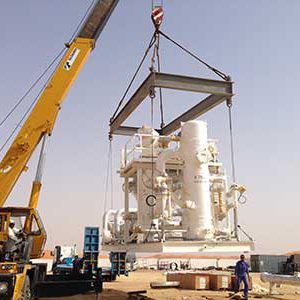
Fuel Gas Conditioning
Fuel gas conditioning systems are designed to deliver clean, treated natural gas with the right pressure. FASAM provides complete Fuel Gas Conditioning Packages and the packages typically consist of a scrubber vessel or knock-out drum, filter-separator, heaters, pressure reduction, emergency/operational valves, and (flow) metering. Fuel gas conditioning systems protect gas-fueled engines and turbines from over-pressure, liquids, solids and aerosols.

